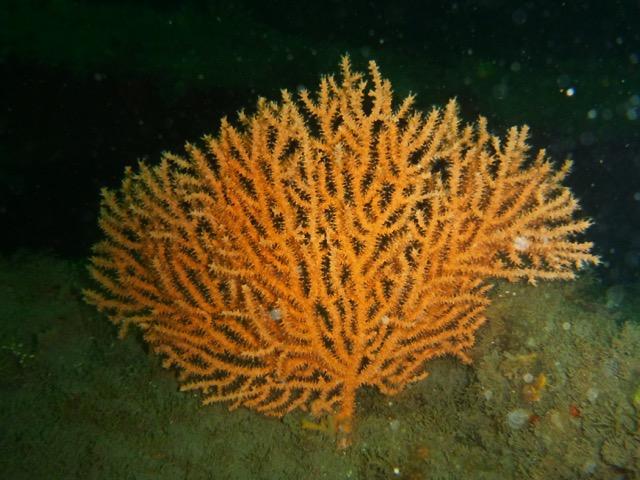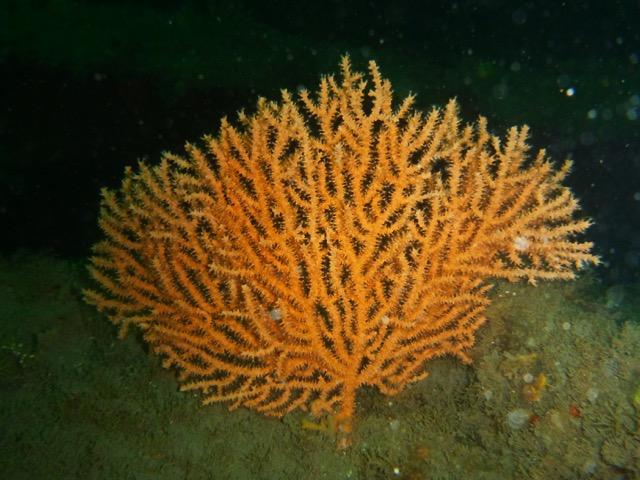
Credit: Dr. Jamie Stevens
The evolution of land animals has been shaped by barriers such as oceans and mountains which have divided them and sent them down different genetic paths.
Scientists have generally seen sea life as more "connected", with currents mixing species in a constant genetic melting pot.
But researchers at the University of Exeter have discovered the truth may be more complex, and some species could be just as disconnected as those divided by mountains or motorways.
They studied two species of soft coral, and in one – the pink sea fan – they found distinct genetic differences between those living in different places.
"Marine life is often seen as totally connected, in the sense that the larvae of any organism can move anywhere," said Dr Jamie Stevens, of the University of Exeter.
"But among pink sea fans we have found genetic differences between those living off north-west Ireland, those off southern Portugal and those off south-west Britain and north-west France.
"These populations of pink sea fans are on the way to becoming different species from one another.
"We don't yet fully understand the causes of this genetic division.
"Currents are one possible barrier – and one which could be just as real and impenetrable as a motorway would be in dividing two populations of hedgehogs."
The researchers also found that populations of pink sea fans around south-west Britain are "net exporters" – sending out more genetic material to other areas than their area receives.
The other coral species studied – dead man's fingers – did not show evidence of distinct genetic structures in the different locations.
Whether these differences are due to better connectivity in this species due its larvae being able to survive longer in the water column or whether dead mans's fingers are less affected by the environment in which they eventually settle than the pink sea fan is at this time unknown.
Both the pink sea fan and dead man's fingers are "broadcast spawners", releasing large amounts of larvae into the water.
The Exeter study could have implications for the creation of Marine Protected Areas (MPAs).
Dr Stevens said the research suggested existing MPAs in British waters appear to be well placed with regard to these species, but he added: "If we want to safeguard the full range of diversity of marine species, we need to protect each species in multiple locations".
"For example, if we protect pink sea fans only off the coasts of the UK and France, we wouldn't be protecting the genetically different pink sea fans off Ireland or Portugal."
The paper, published in the journal Heredity, is entitled: "Contrasting patterns of population structure and gene flow facilitate exploration of connectivity in two widely distributed temperate octocorals."
###
The research was supported by Natural England, the NERC and the University of Exeter.
Media Contact
Press Office
[email protected]
44-013-927-22391
@uniofexeter
http://www.exeter.ac.uk
############
Story Source: Materials provided by Scienmag





